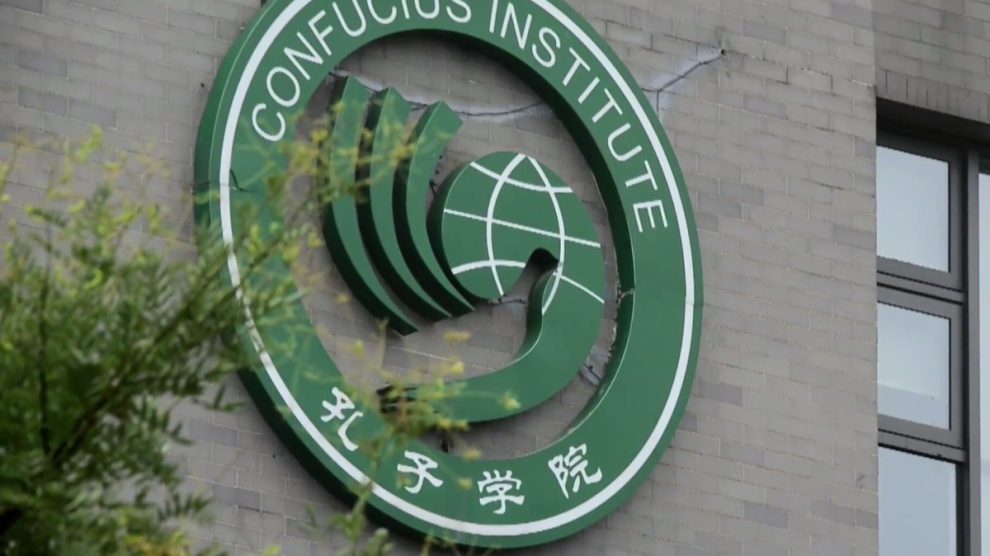More countries ditch Confucius institutes. On Monday, Frankfurt’s Goethe University announced its decision not to renew its recently-expired cooperation agreement with the Chinese government-funded organisation that supports the Confucius Institute.
- The note stresses that “no discernible influence by the Chinese authorities on either research or teaching” happened at the university – possibly an excess of caution –, its decision is just the latest instance in a years-long trend across Western countries.
Meanwhile, Italy does the opposite. The country hosts a dozen Confucius Institutes, and their numbers could expand. Recently, the Italian daily Gazzetta del Mezzogiorno (based in Bari) and Guangzhou Daily, the main newspaper in Canton (Guangzhou), signed a memorandum of understanding as part of the institutional twinning signed in 1986 between Bari and Canton.
- Representing the municipal administration of Bari was Vito Leccese, chief of staff to the mayor Antonio Decaro, who called for “a broader framework of institutional cooperation, in which, with the Politecnico di Bari and the South China University of Technology, we are now working on the possibility of setting up a Confucius Institute in Bari.”
A step back. Confucius Institutes were over 550, and 1,172 Confucius Classes ran in 162 countries and regions of the world at the end of 2019 (latest available data). But these institutions have come into the crosshairs of Western governments, starting with the United States and its Five Eyes allies.
- Washington believes them to be centres of espionage, propaganda and recruitment, which Beijing rejects. The US dubbed them “Chinese foreign missions” and limited federal funding to universities hosting them.
- Also, Canada announced new controls on research funding in “sensitive” areas if any of the researchers are connected to foreign states that pose a national security risk.
- In March 2022, ahead of a report by the Special Committee on Foreign Interference in all Democratic Processes in the European Union, including Disinformation (INGE), the European Parliament recommended European universities to reconsider their cooperation with Confucius Institutes, designating them as Chinese lobby platforms.
Rome was warned. Over the past years, several experts had highlighted the potential risk of deepening cooperation with China through the Confucius Institute. In October 2021, Nicola Casarini (research associate at the Italian Institute for international Affairs and non-resident Global Fellow at the Wilson Center in Washington) analysed the academic ties between Italy and China along the New Silk Road.
- Noting China’s massive investments to promote cooperation with Italian academia, including through Confucius Institutes, he remarked that Italian universities had entered into academic partnerships with Chinese entities on almost all subjects.
- “This has improved Italy’s research prospects, but has also entailed inevitable risks of self-censorship and kowtowing to Chinese wishes. There has also been a wave of academic sponsorship by Chinese companies, particularly ICT companies such as ZTE and Huawei, raising further concerns about Italy’s security interests and cooperation with its Western allies.”
- In 2019, following the Hong Kong soft takeover by Chinese authorities, respected sinologist Maurizio Scarpari called to close such centres. He was answered by Stefania Stafutti, co-director of the Italian part of the Confucius Institute at the University of Turin and former director of the Italian Cultural Institute in Beijing, who remarked that the Confucius Institute[s] “operate as disseminators of knowledge.”
The expert’s take. Laura Harth, campaign director at the Safeguard Defenders NGO, told our sister website that it’s crucial for the Italian government to act quickly to address the problem of interference – “also in light of recent revelations about transnational repression, influence peddling and, last but not least, phenomena of evasion and money laundering involving Chinese crime in Italy.”
- The tones of confrontation coming from the People’”s Congress these days should make Italy realise that this is a decisive moment,” she stressed. “There is no time to lose, starting with a public decision by the government on the Silk Road as soon as possible.”




